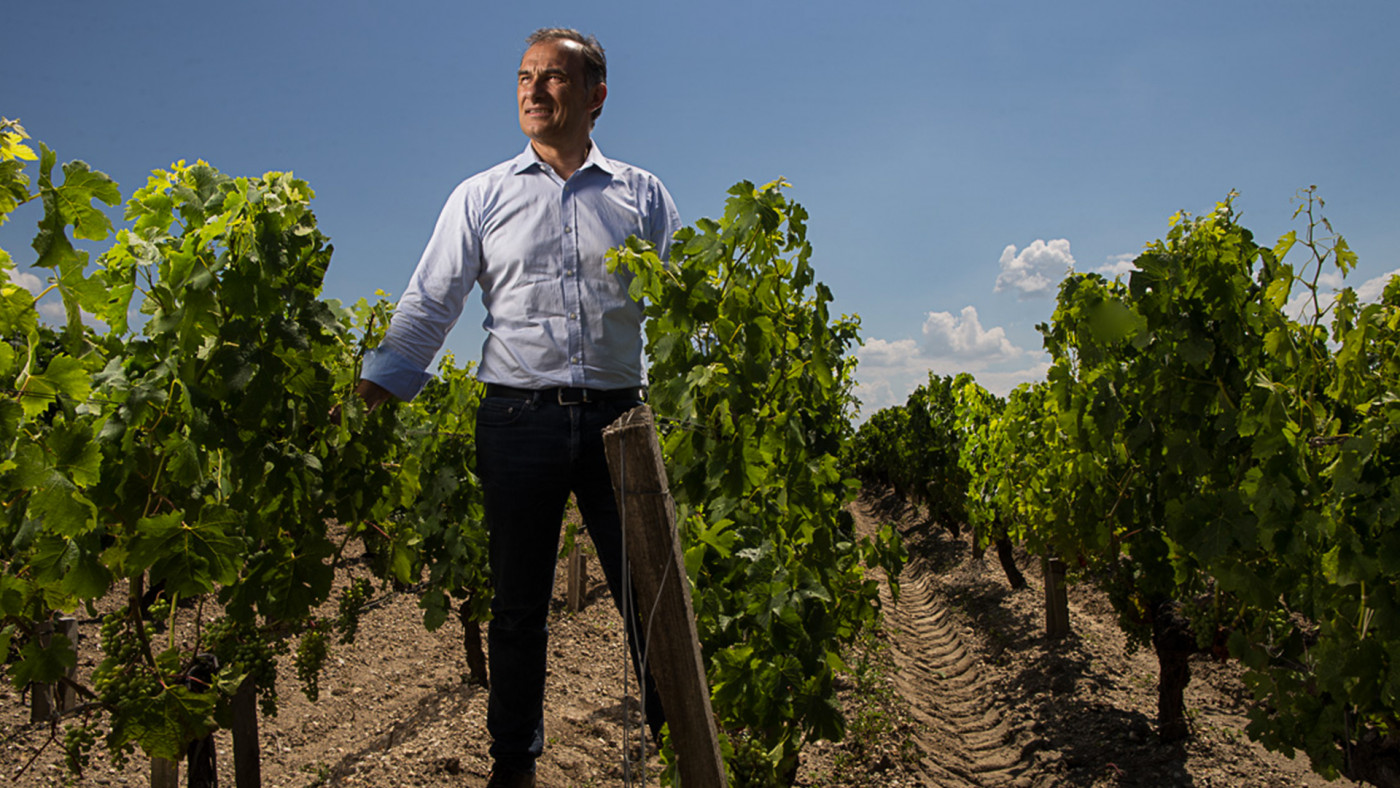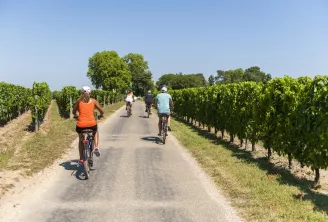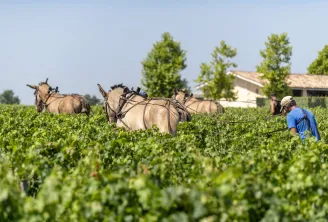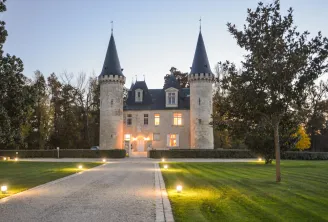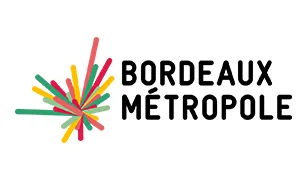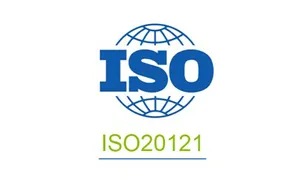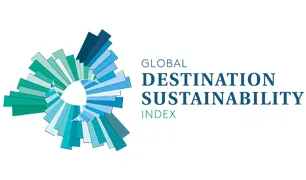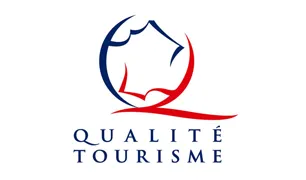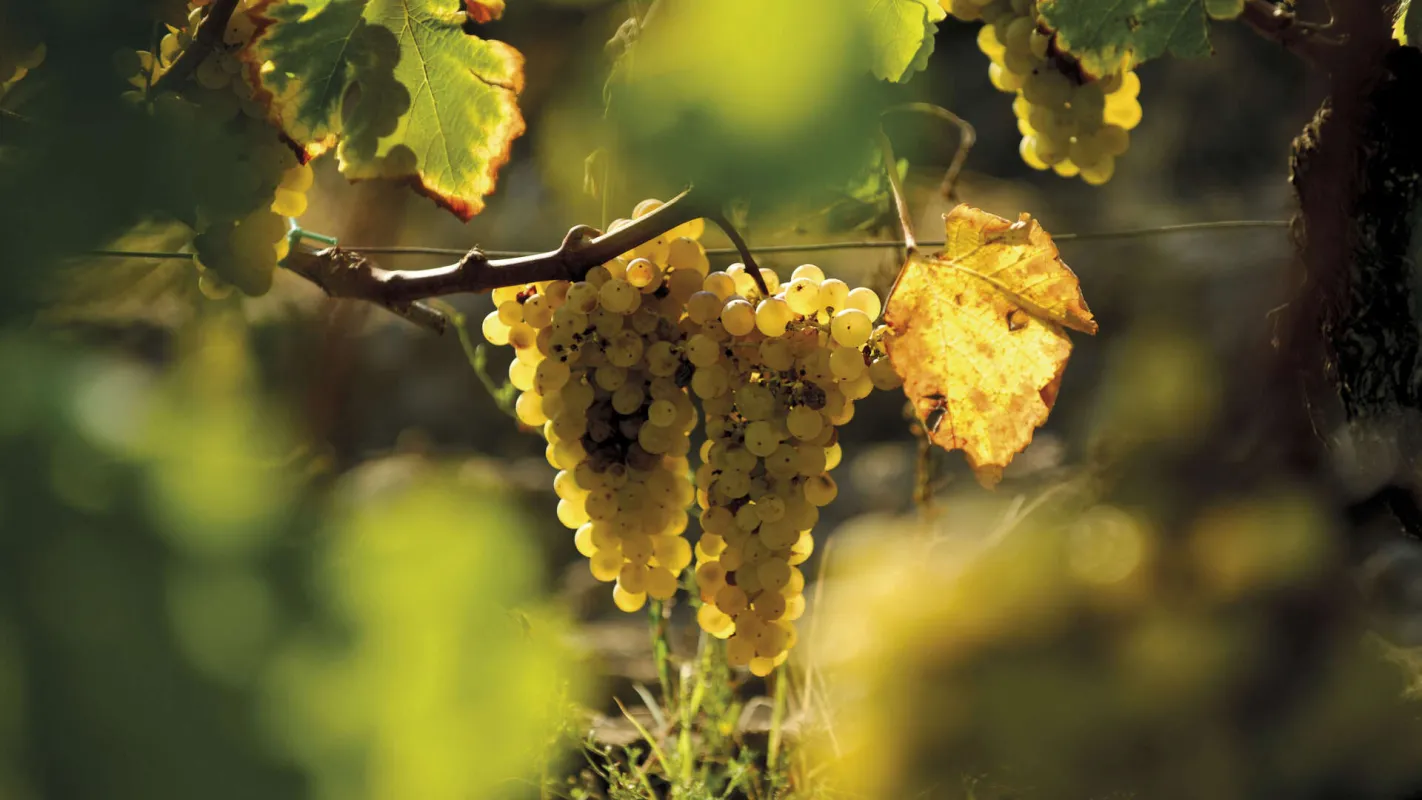
Committed winegrowers
Passionate about the vineyard, these winegrowers have the terroir running through their blood. They wish to preserve it for future generations through adopting responsible and sustainable winemaking practices. Meet these women and men committed to shaping the vineyards of tomorrow.
Florence et Jacques Borel make the wine they love
When Florence and Jacques Borel took over the Chelivette estate in 2014, they immediately began converting the vineyard to organic agriculture. “We couldn’t picture ourselves in a different kind of wine-growing. It’s a state of mind,” sums up Florence Borel. Of the 30 hectares, only 12 are planted with vines. “The rest of the area welcomes trees or cereals that are used as green manure. Soon there will be a vegetable garden and animals. We wanted to make it as lively and self-sufficient as possible,” she adds. Since 2019, the domain is certified in biodynamics. In the winery, the couple plays with seven grape varieties - grown in vats, barrels, or terracotta amphoras - to craft audacious blends. Not keen on following conventions, Florence has even emancipated herself from the Bordeaux wine bottle format. From the grape to the bottle, their philosophy can be summarised as follows: “we make the wine we like to drink.”
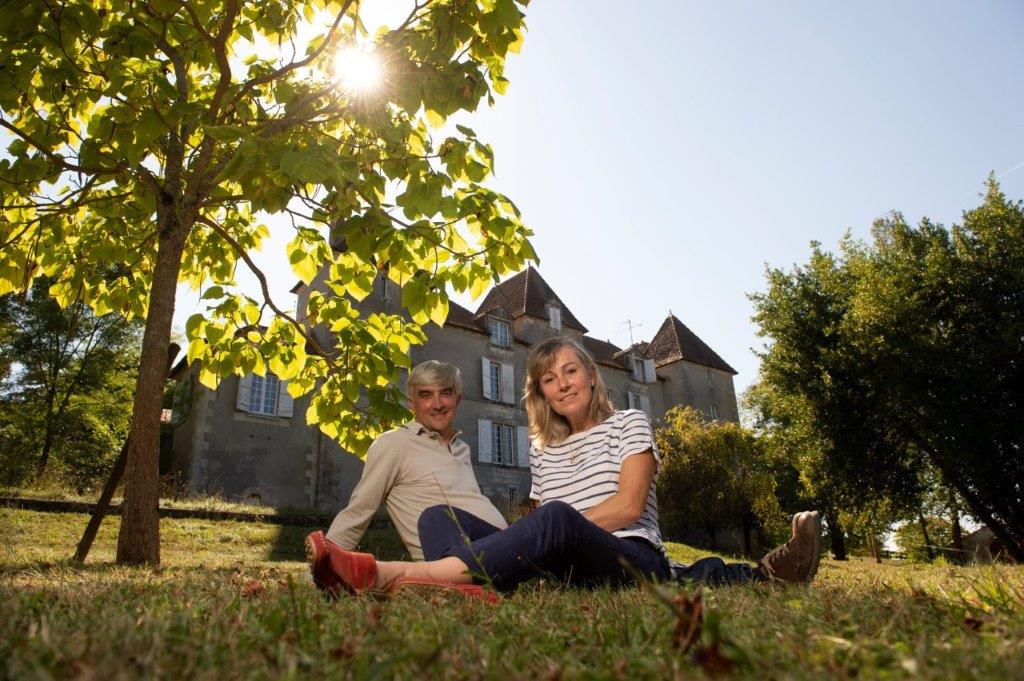
Matthieu Bordes, a living world enthusiast
“I enjoy this closeness to nature,” says Matthieu Bordes, General Manager of Château Lagrange where he has been working for fourteen years. “As early as 1995, the Château was an INRA pilot site for testing sexual confusion capsules,” he explains. Since then, the Château in sustainable agriculture (and 30 hectares in organic and biodynamic agriculture) has also dedicated 39 hectares to meadows, beehives or ecological niches. “We also share sheep with a neighbouring Château. This type of eco-grazing avoids soil compaction, noise pollution, and air pollution,” continues this oenology graduate and agricultural engineer. Since 2007, the estate has been the first to implement co-inoculation: “We take advantage of the heat released by the alcoholic fermentation to practice malolactic fermentation. This avoids heating the cellar to 20°C. We have saved 8.5% of the annual electricity consumption.”
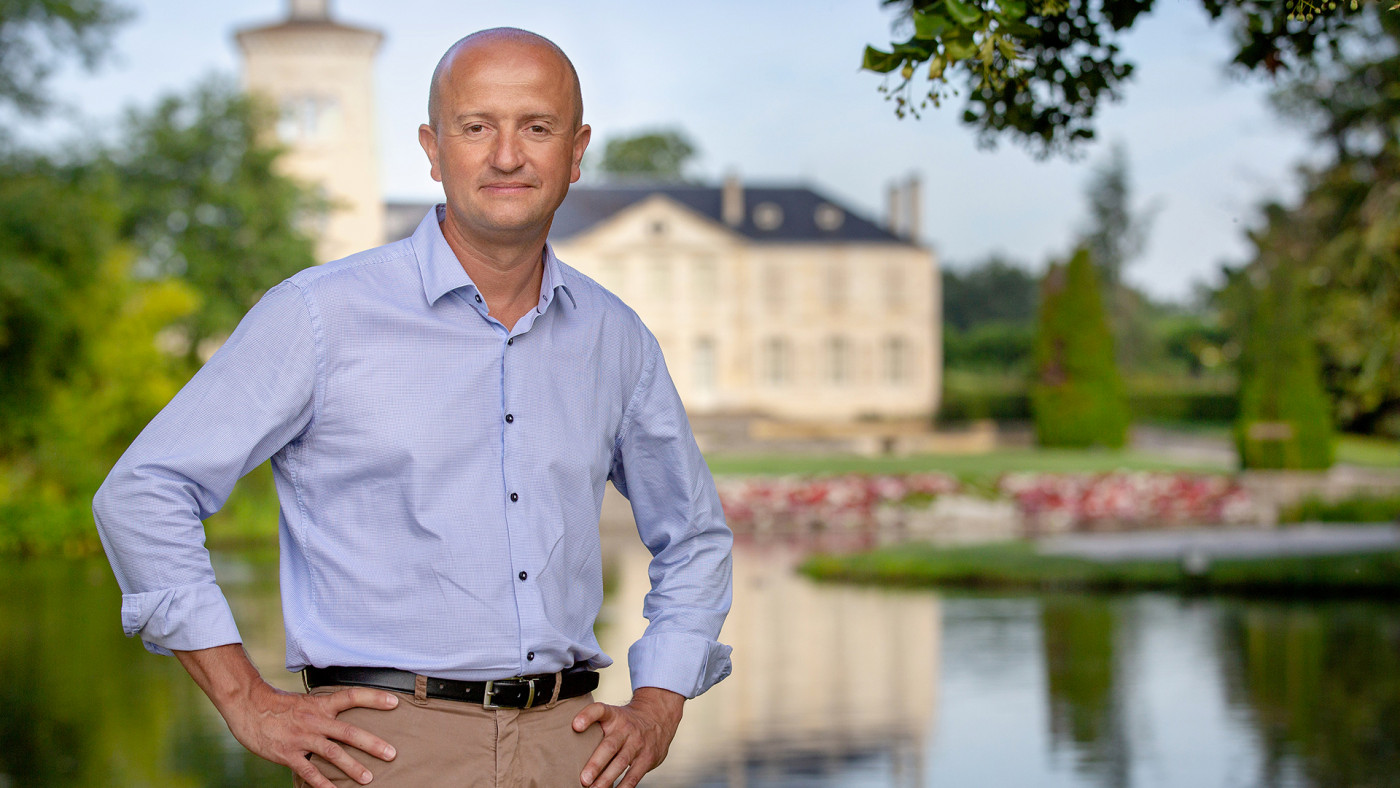
Valérie Godelu wants
A graduate in management and law, Valérie Godelu wasn’t initially destined to become a winegrower. “I resumed my studies at the Wine High School of Beaune.” When her third daughter was born, she created the Domaine des Trois Petiotes. “I bought 3 hectares of vines in the Côtes de Bourg. Three plots of land with three different grape varieties.” She runs her small vineyard through an organic farming approach. “It was obvious that organic wines were the ones that touched me the most” she sums up. Alone in the vineyard and the cellar, she makes wine à l'ancienne - the traditional way. Intolerant to sulphur, she puts only a minimal dose in her wines and prepares herbal teas to care for and protect her vines. Above all, she observes the way nature reasserts itself. “I continue to marvel at every new variety of flowers and insects.”
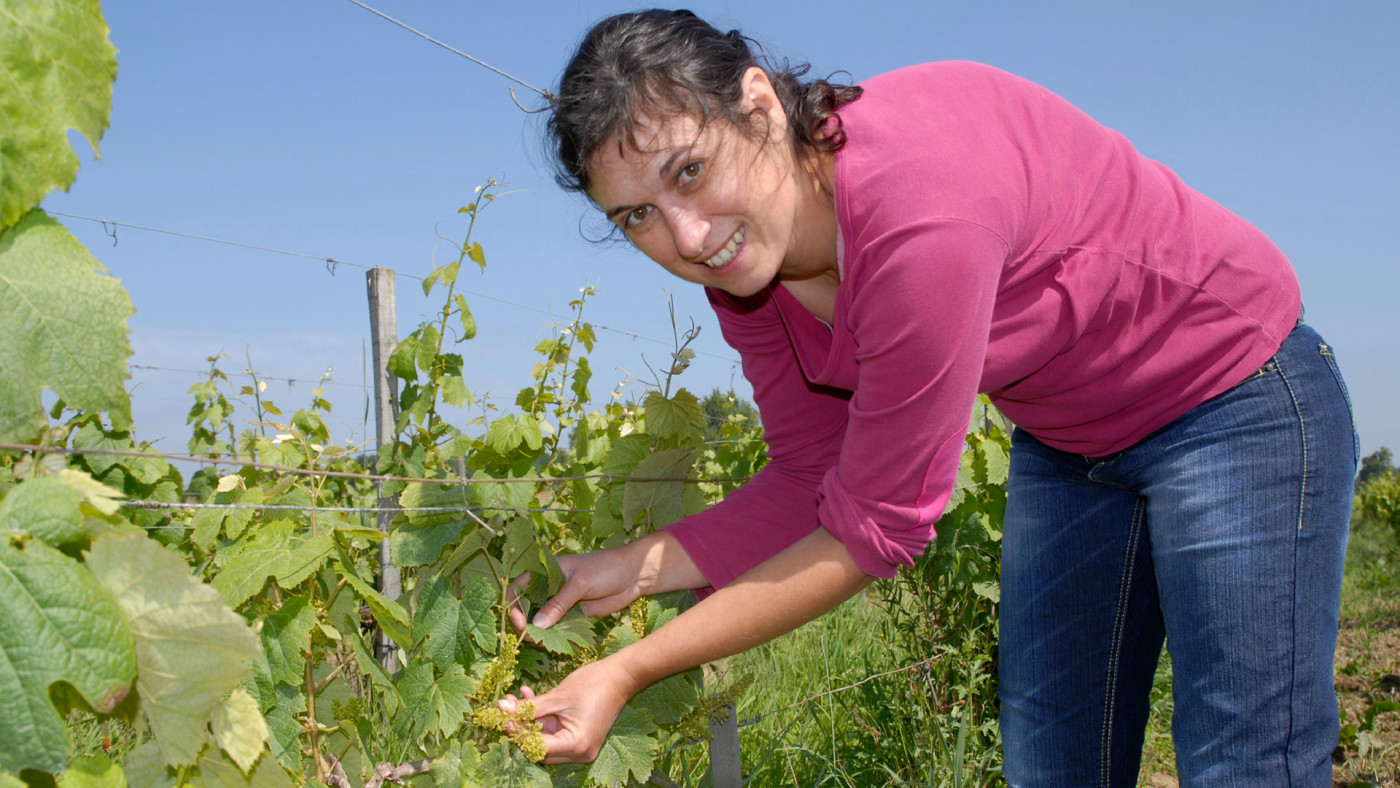
Philippe Roux has witnessed the rebirth of biodiversity
At Château Dauzac, only 45 of the property’s 120 hectares are vines. “When we arrived, the rest was occupied by a forest of poplars. During the past 15 years, we planted an orchard of old plant varieties, set-up beehives, built a pond and introduced sheep and horses to develop an ecosystem, to recreate life. And it’s pretty!” explains Philippe Roux, Technical Director, who is happy to have worked for the estate for 25 years. For him, this biodiversity has strengthened the bonds between the members of the team. On the vineyard side, “we have the impression that things are going better. We escaped the great downy mildew crisis in 2018, we haven’t had a frost since 1991. On the wine-growing side, we don’t need to add sugar to the grapes any longer because the sugar levels are rising on their own. Everything is balanced!”
